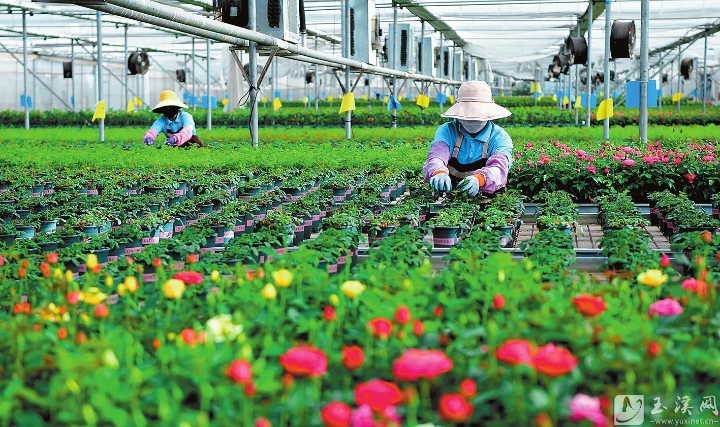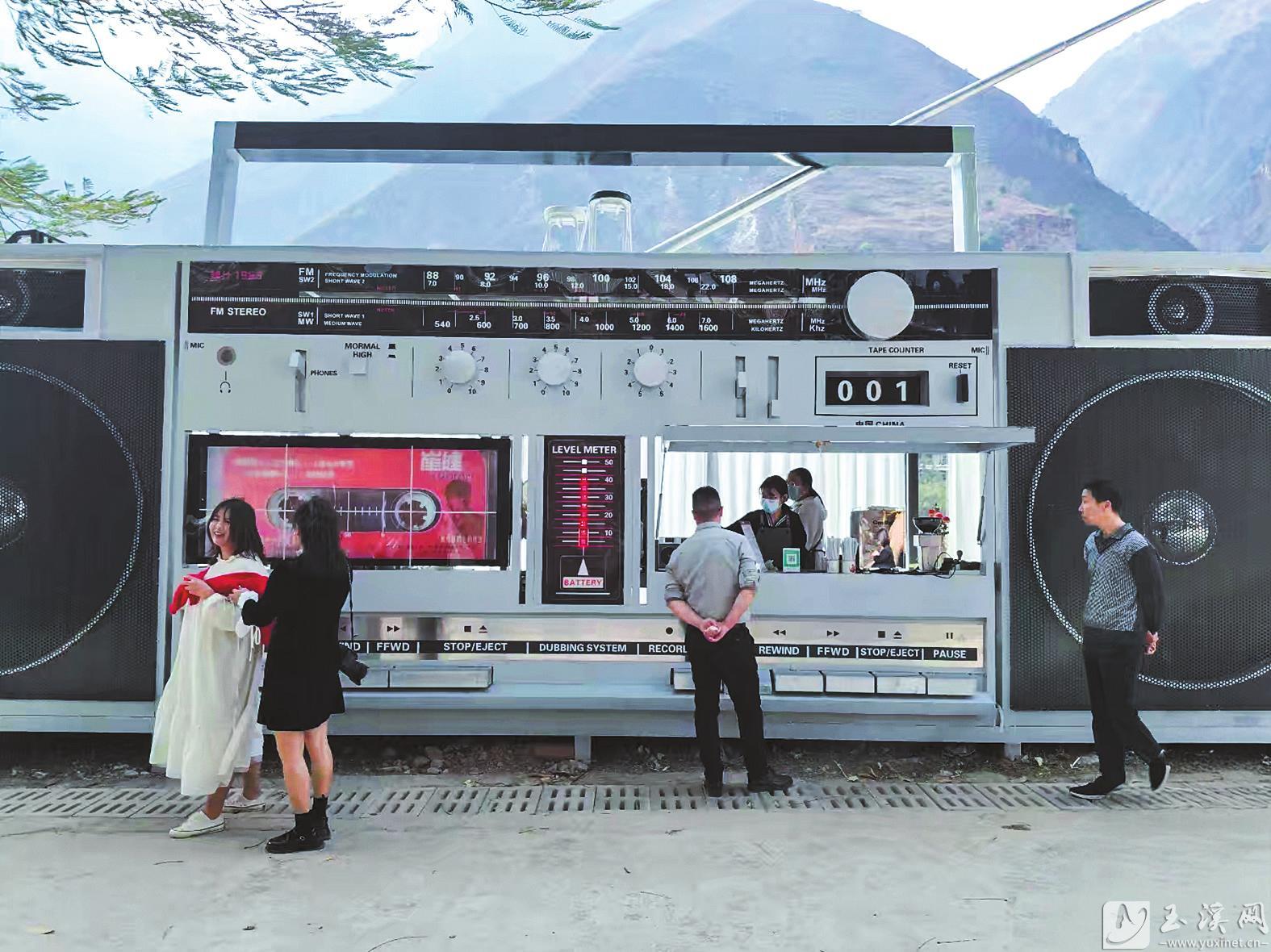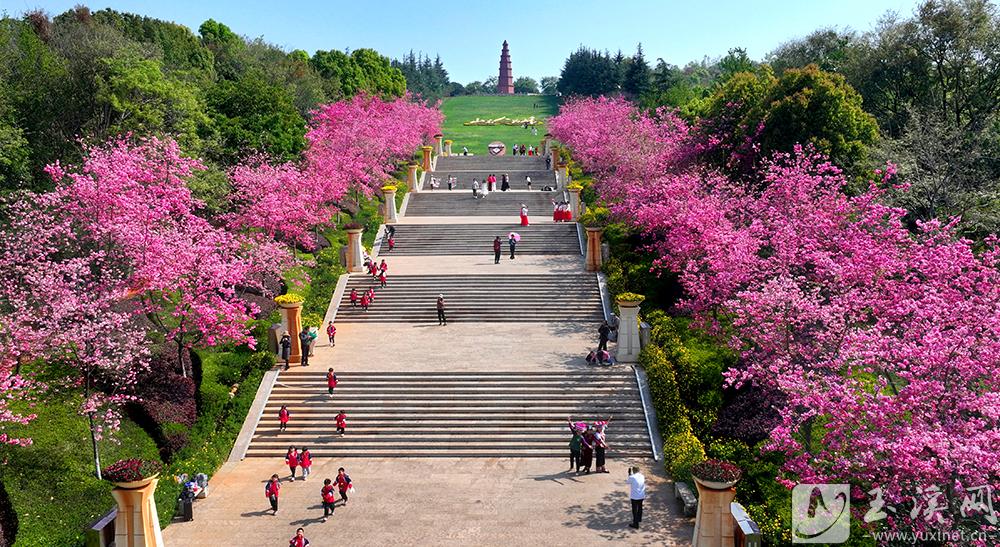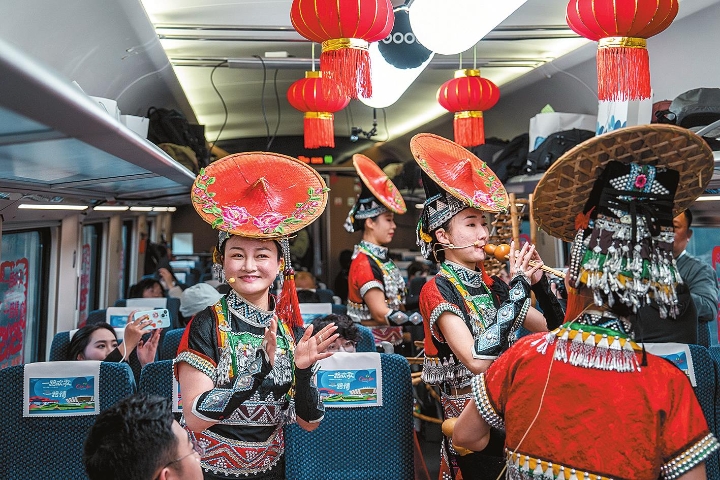 Yuxi Municipal People's Government
Yuxi Municipal People's Government
The Mixian (Rice Noodle) Festival in Yuxi
The Mixian festival has been celebrated for several hundred years and is a traditional festival unique to Yuxi people.
The festival originates from worship for the God of Land. The former name of Yuxi is Xinxingzhou which consisted of Pushe, Xiuna and Yanhe counties. The three counties had their own God of Land respectively.
The Mixian Festival came from the tradition of the patrol of Pu Guantong, the general representative of the God of Land.
In ancient times, Xinxingzhou was surrounded by forests and rivers with few human inhabitants. Wild and fierce animals such as wolves and leopards could be seen in many places. In one summer, after seven days and nights of pouring rain, farm fields and houses were destroyed and people became homeless without food. The official who was in charge of water control in Xiuna Government Pu Guantong left his wife and children to lead people to rebuild flood control dam, dredge rivers, open new farm fields, and plant crops, and finally defeated the disaster. After three years of treatment, Xinxingzhou became a land without floods or draughts and people were living a content life. Unfortunately, Pu Guantong died unexpectedly due to fatigue.
People believed that Pu Guantong was a god sent by the Heaven to save them, and therefore called him with respect “Guardian God”, “God of Land”, or “Master Tuzhu”. Later, Han people moved from Jiangnan (the River South) to dwell in Yunnan. People wouldn’t forget the unselfish official and collected money to build a Tuzhu (God of Land) Temple in his honor. One year in spring time, Tuzhu Temple was completed and people gathered there to hold a big banquet to celebrate the event. Except for the traditional 8 dishes, the most noticeable dish was Mixian (rice noodles) covered with various dressings. An intellectual on his way to imperial test saw the scene and commented that it looked like a festival. People then asked him, “What festival?” He answered with a bowl of Mixian in his hand, “Mixian Festival.” The name was gladly accepted by the mass. Then one person suggested, “Tuzhu God’s treatment of water has brought welfare to local people and he shall be remembered by all. To give all people chances to worship him, villages should take turns to have his stature in the village for one day in a year.” The suggestion was approved immediately. After discussion, the patrol route was decided. One carriage and two boards with characters “Constructing Water Conservancy” and “Benefiting People” were specially made for the event. Since then, starting on the first day of the Chinese lunar New Year, the villages have been taking turns to receive the statue of Tuzhu God according to negotiated route that passes through 128 villages. The event ends on February 25 of the Chinese lunar calendar and then the statue is returned to the Tuzhu Temple.
The event also stimulated areas nearby to receive their own god for the Mixian Festival, which lasts from the first day to March 22 of the Chinese lunar calendar. The whole Xinxingzhou had 7 Tuzhu gods and 10 Ancestors and that made the participating villages to 470 which lasted 81 days. It became a folk event that was of the largest scale and the longest time.
Counted from 1276, the Mixian Festival has been celebrated for more than seven hundred years. Rather than described as people’s worship for ancestors, the festival can be regarded as to show people’s good wishes for a peaceful time and a happy living without disasters.
With the development of the society, people’s living standard has been elevated and the celebration of the Mixian Festival is also endowed with more varieties.
Now people call the festival “Gathering Festival”, “Harvest Festival” or “Bean-bran Festival”. At the festival, parents will invite their married daughters and sons-in-law together for the celebration of the occasion.

On July 21st, workers were busy among the lush potted flowers in the intelligent flower planting greenhouse of Yuxi Ziyu Flower Industry Co., Ltd. This company is a leading enterprise in agricultural industrialization engaged in the production and sales of rose seedlings, potted roses, potted succulents and potted phalaenopsis. With a very productive operation mode, this company has built a research and development platform in cooperation with multiple scientific research institutes, and owns 17 national patents. Flowers from Yuxi are sold far to first-tier and second-tier cities across China and have become a well-known brand in Yunnan's flower industry.

Recently, visitors to Yimen have noticed a café in Luzhi Town, which looks exactly like a tape recorder. With 3.5 meters wide, 10 meters long, and weighing 6 tons, it perfectly replicates the iconic dual-cassette tape recorder from the 1980s, and the owner continuously plays pop music from the 1980s, attracting an increasing number of netizens and tourists to explore it. This highly creative café, which has gone viral on social media, has become a popular local landmark for photo check-ins.

Cherry blossoms are in full bloom at Hongtashan Park, attracting visitors with its springtime spectacle. On March 25, many citizens flocked here to admire the flowers, enjoy the scenery, and take photos, creating a beautiful landscape. Every year when the cherry blossoms bloom, Hongtashan Park draws a large number of tourists.

Performers of Yuxi Nie’er Bamboo Orchestra performed on the D87 China-Laos Railway international passenger train in Jan. 14. At 8:08 am, the China-Laos Railway international passenger train No. D87 left Kunming South Railway Station and headed for Vientiane, Laos. Different from the previous train, the joy and vibe of a transnational artistic performance was spreading all over the train, so that audience of all kinds of "screens" can feel the joy of this international train. (Photo by Hu Chao/Xinhua News Agency)
